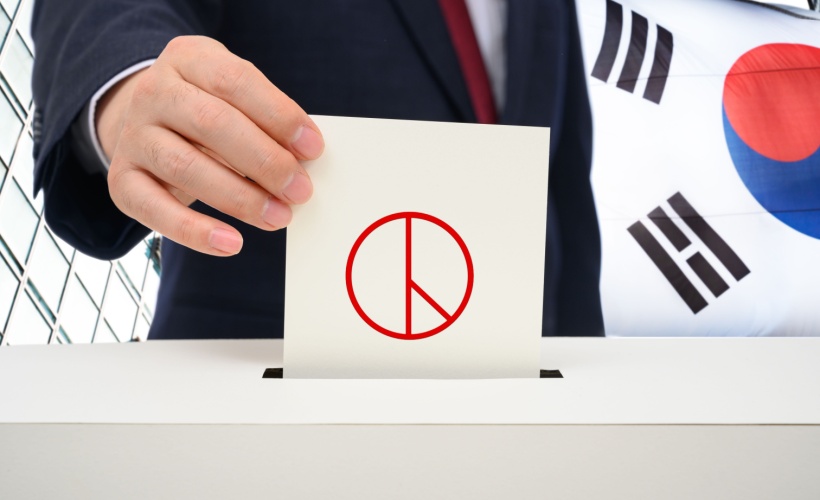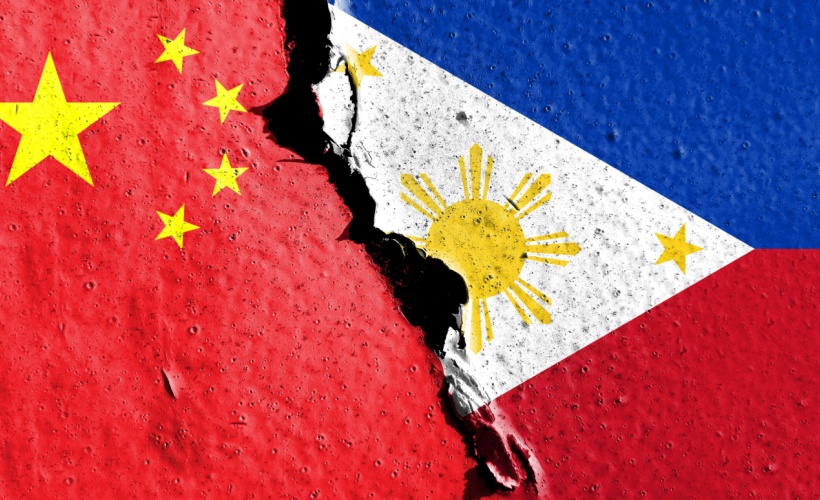By Dr Lisa Vickers, Research Assistant
Dr Andrew MacDonald (Assistant Professor of Social Science, Duke Kunshan University) joined the Centre for Geopolitics online on 19 October 2023 to discuss the findings of his two-wave survey regarding online privacy in China. One wave of the survey was conducted before the 2022 zero Covid lockdowns while the other was conducted afterwards. Professor William Hurst (Chong Hua Professor of Chinese Development, University of Cambridge and Deputy Director of the Centre for Geopolitics) spoke in conversation with Dr MacDonald after his presentation and facilitated audience question and answers.
Project Motivation and Data Collection
China is a heavily surveilled state and uses CCTV and apps to monitor its citizens. Dr MacDonald wanted to understand more about the effectiveness of China’s monitoring and how people respond to being monitored in China. The Covid pandemic increased the Chinese population’s sharing of personal information with the Chinese government, as technology was used to prevent the spread of Covid. Those in China needed to scan their phones in public areas and check a daily app to determine exposure to Covid and lockdown status. Dr MacDonald aimed to understand the Chinese population’s feelings regarding this change in surveillance.
Dr MacDonald collected two waves of survey data. The first wave of survey data took place in March 2021 when people in China were living with few Covid restrictions. The second wave of survey data took place in March 2023 after a series of lockdowns in China. Dr MacDonald predicted that attitudinal changes would be visible between these two periods of time and aimed to compare them. He recruited respondents from similar demographics to participate in the surveys and sought to control for any demographic differences that were present. Dr MacDonald went on to present several hypotheses of how respondents could react to increased government monitoring.
Results
Dr MacDonald stated that, overall, those surveyed had high satisfaction with their government. Questions about surveillance indicated that when thinking about government performance, respondents were not thinking about surveillance. He found that between 2021 and 2023 there was a large increase of people who were accepting of their data being tracked. While respondents were more accepting of central government monitoring their data, they were less accepting of local government and private companies doing this. Dr MacDonald interpreted this finding as an indication that people fundamentally accept that their government needs to impose monitoring for the public good. While this acceptance cannot be attributed to Covid with certainty, Dr MacDonald asserted that it is difficult to think of another traumatic event that would have led people to amend their beliefs so strongly.
Speaking about the advanced results of the survey data, Dr MacDonald did not find strong patterns across demographic variables. He found that older people were slightly more trusting of the government, while young people were slightly more agreeable to private companies monitoring their data. However, these differences were not significant, nor were there strong differences in responses across cities, education, and the like. However, there were some exceptions. Dr MacDonald found that not being a party member made people feel less comfortable with all entities – including government – knowing about their personal data. Furthermore, while people’s attitudes did not seem to change across locations, survey data collected in Shanghai in 2023 indicated that citizens had much more negative feelings towards central and local government monitoring than in 2021. Perhaps the intensity and frequency of Shanghai’s lockdowns were contributing factors to this response. Dr MacDonald argued that a major event, or series of policies, would need to happen for people to lose trust in the Chinese government.
Conclusions
Dr MacDonald concluded that the data does not indicate that distrust in authoritarian regimes is a contributing factor to responses – people in China trust their government and rate their government as performing highly. The Chinese population care about their privacy, but mostly in relation to private companies. Between 2021 and 2023 there was a modest decrease in satisfaction of government performance, which Dr MacDonald views as synonymous with trust. The causes for this decrease were unclear but Dr MacDonald ruled out that people were offended by the type of monitoring experienced. People’s acceptance of government monitoring went up between 2021 and 2023, indicating that respondents believed in the foundational justification for the monitoring. The White Paper movement was likely an expression of a specific grievance in China, rather than an indication of a major change in people’s attitudes towards the government.
Dr MacDonald asserted that the main take-away from his research is that trust drives much public opinion. While people treat privacy as a discreet issue area, much of it relates back to generalised trust. People have deep-rooted starting points in their beliefs, which are difficult to move them away from. Even with Covid’s life-altering effects, people’s beliefs did not shift as much as one might expect.
The data that Dr MacDonald collected from these surveys is publicly accessible and can be viewed here. His working paper with analysis drawn from these survey results can be found here.







